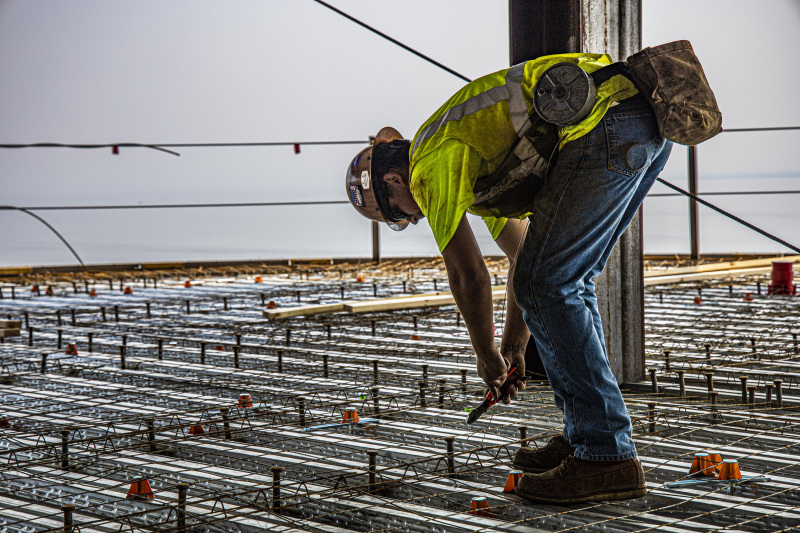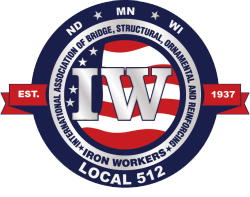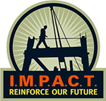
We’ve written about mental health for Ironworkers in this space before. We’ve also touched on the fact that Ironworkers do hard work in tough conditions. There’s no question that the construction trades are hard work. It’s the type of work that can wear down a body. The everyday crouching, climbing, carrying, and clenching tools all take their toll. And Ironworkers use a lot of tools, but every Journeyman’s number one tool is their body. And that tool really gets put to hard use. Joints, especially, pay a price for the work. Many Ironworkers have had knees, hips, or shoulders replaced, and often at an earlier than normal age. Bad backs are a common problem, too. Ironworkers tend to do a lot of overhead work, and frequently have to work in awkward positions. Plus, there are environmental factors to consider. Working outdoors in the sun year after year is hard on the skin, and it creeps up on Ironworkers slowly. As a trade, we’re getting better about using sunscreen, but many Journeyman, especially older ones, never put it on.
Ironworking can be hard on hearing and sight, too. Construction sites are loud, making this is another area where damage adds up over time. There are a lot of older Ironworkers who wear hearing aids, and a lot more who probably should. Ironworkers who weld a lot can develop visual impairments beyond the typical ravages of time, and lung problems are not uncommon.
This all sounds pretty terrible, right? The good news is there are ways to mitigate the damage. Let’s look at some behaviors and resources that are available to Ironworkers to help heal and maintain their physical health.
First, general overall health is vital. Ironworkers look after and care for their personal tools; it’s important to apply the same level of concern to that number one tool by maintaining a healthy lifestyle. That means fueling your body properly, getting enough sleep, and staying at a healthy weight. It’s also very important to take advantage of the Ironworker’s Local 512’s great medical, dental, optical, and chiropractic insurance coverage. It covers all sorts of preventive services. Get those annual checkups and maintain your body!
Of course, this is a lot of the same advice that any doctor would give to anybody—not just an Ironworker. There are plenty of things that are specific to Ironworking that can help maintain your physical health. The first is always using the right personal protective equipment (PPE). Simply following best practices for using PPE can go a long way to keeping you healthy. This can be as simple as wearing ear plugs in loud environments. Hearing loss is a huge problem for Ironworkers. Younger Ironworkers often don’t wear ear plugs, and by the time they figure out they’re losing their hearing, it’s almost always too late: the damage has already been done. Another step is to always wear safety glasses. And when you’re doing a task that calls for custom PPE, such as welding, be sure to use the burning safety gear. Another sometimes overlooked part of keeping yourself healthy is wearing proper footwear. Supportive, protective work boots can help ease wear and tear on your feet and prevent injury.
Sometimes the PPE doesn’t even seem like PPE. For instance, one Ironworker had this story to tell:
When I was a young Ironworker, I used to jump off semi-trailers when we were done unloading them. A co-worker brought over a ladder for me to use to instead of jumping. He told me I would wear out my knees and hips hopping off the trailers. I didn’t listen, and 20 years later I was in for a hip replacement at 47 years old. I should have listened to him!
The Ironworkers benefit package includes access to an EAP—an employee assistance program. Our EAP is managed by TEAM, which works with labor and trade unions in the Midwest. TEAM helps our union members get help and care when they need it, whether for themselves or their families. They understand labor, how jobsites work, and what Ironworkers’ lives are like. They offer assistance for a wide range of things that can help improve the lives of Ironworkers and their families, from nutrition and wellness assistance to weight loss and quitting smoking to mental health and addiction; almost anything that can be a challenge in an Ironworker’s life, the EAP can help.
Ironworkers typically work hard and play hard (or harder!). It’s easy for physical health to take a back seat until you can’t grit your way through it, but that’s no way to keep your physical abilities for the long term, and that’s what being an Ironworker is all about: working hard, supporting your family, and retiring intact and with dignity. Physical health goes a long way toward making that retirement one you can enjoy to its fullest.









